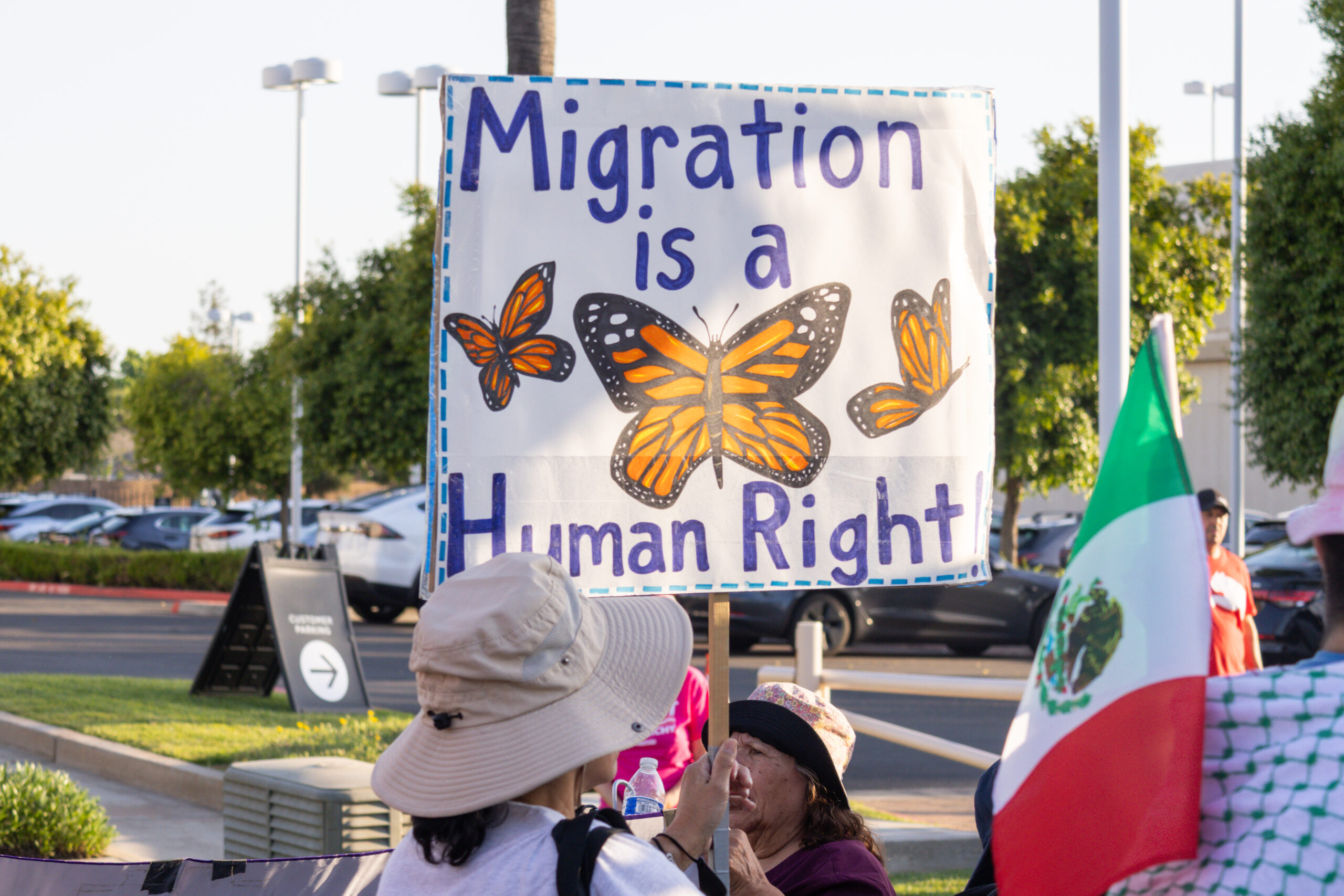
By Claudia Gonzalez, first posted with We’Ced Youth Media.
MERCED– On the eve of Cesar Chavez’s 87th birthday, the towns of Planada and LeGrand came together to celebrate the life of the Mexican-American icon. A strong theme of the event, which included a carnival, dinner, and free screening of the Chavez biopic film, was the difficulties farmworkers continue to face in Merced County and across the state.
“The community in Planada embraces agricultural life,” said Alfonso Nava, principal of Cesar Chavez Middle School in Planada, who helped organize the event. “A lot of us come from farmworker families. We can relate to the struggles of our community members.”
These struggles the farmworker community faces are concentrated in the Central Valley. According to the National Center for Farmworker Health, of the estimated 800,000 farmworkers in California, the majority live in this broad swath of the state, and around 20,000 farmworkers reside just in Merced County. A large portion of farmworkers are immigrants from Mexico, and over 50 percent are undocumented.
In 1965, urged and inspired by Filipino farmworkers who had created a union and began to strike, Chavez and Latino farmworkers joined the efforts to demand better pay for workers. Five years later, the struggle between farmworkers and farmers catapulted Chavez and the United Farm Workers (UFW) into the limelight. At the height of the Farmworker Movement, the UFW landed historic contracts for their workers, and gained unprecedented rights for farmworkers. As reported by Public Broadcasting Service (PBS), around 14 million Americans boycotted grapes, bringing the plight of agricultural workers into public consciousness, and in the process, helping California farmworkers secure numerous victories.
Fifty years later, despite decades of hard work, the struggle continues.
In many areas, farmworkers are still not allowed to unionize and still do not have access to benefits or health insurance.
“Farmworkers in the county are a little behind in things like medical benefits and safety issues, Nava said. “There’s still a lot of work to be done. That’s why it is important that we remember the work and movement of Cesar Chavez. ”
Although Merced is the fifth largest agricultural county in California, with over 25 percent of the workforce employed in the industry, there has not been a strong organizing presence for farmworkers in the area in recent years. The closest UFW office, the union Chavez helped start, is in Madera over 30 minutes away.
“Many of us can’t just drive over there if we have a problem,” said Melania Gonzalez, 21, who has been working in the fields since she was 15. “Its just too far away, we need to have an office in the county.”
In fact, organizations that work primarily around farmworker issues are almost non-existent in the county.
“Sometimes we have organizers that come from the South Valley or Southern California,” said Crissy Gallardo, 24, a community organizer with Merced Organizing Project (MOP). “But there is no one in Merced who organizes our field workers.”
Gallardo, whose work focuses on the Health4all campaign and immigration reform, has made an effort to support and include farmworkers in MOP’s projects.
“Our farmworkers work tireless hours in the fields; they deserve to be protected, and most importantly they deserve health coverage,” she said. “Health care should be a right, not a privilege.”
Hortencia Rodriguez, 88, marched and worked with Cesar Chavez decades ago.
“Before we were fighting for things like housing, water, and shade, but now things are different,” she said. “Now the fight is about humanizing our farmworkers. The community could be doing more to help our campesinos.”
According to figures from the Bureau of Labor Statistics, farmworkers in California earn an average hourly wage of around $9.00, and usually make less than $20,000 a year.
“I wish they would treat us better, or that we could have more opportunities,” said Gonzalez, who also noted that working in the fields while being a student at Merced College student is challenging. “I’ve been working in the fields since I was in high school, because it is the only way I could make a living.”
It is common for some students to work the fields during spring break and any other free time.
“We don’t have the luxury of taking a vacation,” said Gonzalez. “We have to work if we want to eat, because what they pay is very low.”
Access to drinking water and sanitary conditions, basic worker rights that Chavez’s generation began the fight for, are still an issue today.
“We have two bathrooms for around 40 people,” said a farmworker at the event who wished to remain anonymous. “The biggest issue is that they are rarely cleaned. They are very dirty, but companies don’t care.”


